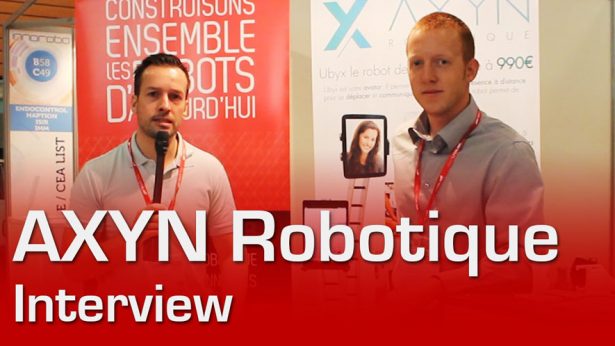Welcome, and on this video we are doing product review for the Robonaut 2, which is a Robot developed by Dextrous Robotics Laboratory! So if you want to see how this humanoid space Robot is working alongside astronauts, then please stay tuned!
Hi Guys, I’m Philip English from robophil.com, now on this video we are looking at the Dextrous Robotics Laboratory designed, Robonaut 2!
Robonaut is a humanoid robotic development project conducted at NASA’s Lyndon B. Johnson Space Center (JSC) in Houston, Texas, in collaboration with General Motors and Oceaneering
Robonaut differs from other current space-faring robots in that, while most current space robotic systems (such as robotic arms, cranes and exploration rovers) are designed to move large objects, Robonaut’s tasks require more dexterity.
The core idea behind the Robonaut series is to have a humanoid machine work alongside astronauts. Its form factor and dexterity are designed such that Robonaut can use space tools and work in similar environments suited to astronauts.
There are currently four Robonauts, with others currently in development. This allows us to study various types of mobility, control methods, and task applications.
The value of a humanoid over other designs is the ability to use the same workspace and tools – not only does this improve efficiency in the types of tools, but also removes the need for specialized robotic connectors. Robonauts are essential to NASA’s future as we go beyond low earth orbit and continue to explore the vast wonder that is space.
Robonaut 2 or R2, launched to the International Space Station on space shuttle Discovery as part of the STS-133 mission, it is the first dexterous humanoid robot in space, and the first US-built robot at the space station. But that was just one small step for a robot and one giant leap for robot-kind.
Initially R2 will be deployed on a fixed pedestal inside the ISS. Next steps include a leg for climbing through the corridors of the Space Station, upgrades for R2 to go outside into the vacuum of space, and then future lower bodies like legs and wheels to propel the R2 across Lunar and Martian terrain. A four wheeled rover called Centaur 2 is being evaluated at the 2010 Desert Field Test in Arizona as an example of these future lower bodies for R2.
In the current iteration of Robonaut, Robonaut 2 or R2, NASA and General Motors are working together with assistance from Oceaneering Space Systems engineers to accelerate development of the next generation of robots and related technologies for use inR2 20 pound weight, Robonaut the automotive and aerospace industries.
Robonaut 2 (R2) is a state of the art highly dexterous anthropomorphic robot. Like its predecessor Robonaut 1 (R1), R2 is capable of handling a wide range of EVA tools and interfaces, but R2 is a significant advancement over its predecessor.
R2 is capable of speeds more than four times faster than R1, is more compact, is more dexterous, and includes a deeper and wider range of sensing.
Advanced technology spans the entire R2 system and includes: optimized overlapping dual arm dexterous workspace, series elastic joint technology, extended finger and thumb travel, miniaturized 6-axis load cells, redundant force sensing, ultra-high speed joint controllers, extreme neck travel, and high resolution camera and IR systems. The dexterity of R2 allows it to use the same tools that astronauts currently use and removes the need for specialized tools just for robots.
One advantage of a humanoid design is that Robonaut can take over simple, repetitive, or especially dangerous tasks on places such as the International Space Station. Because R2 is approaching human dexterity, tasks such as changing out an air filter can be performed without modifications to the existing design.
Thanks Guys, I hope you enjoyed the overview of the Robonaut 2, from Dextrous Robotics Laboratory.
Now if you liked this Product Review and want to see even more Robot Reviews, then please hit the Subscribe button and keep update with the latest videos that come out.
Please have a look below, where I have put links relating to this videos , as well as other information about the “Robonaut”.
If you have any questions or want to see a product review of a particular Robot, then please write me a message in the comment section and I will see what I can do.
Thanks Guys! And I will see you next time.
Philip English: https://philipenglish.com
Sponsor: Robot Center: http://www.robotcenter.co.uk



